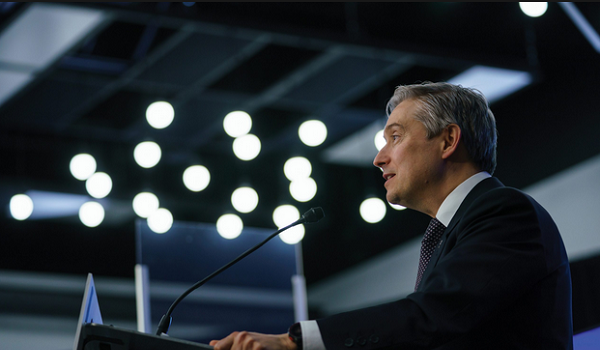Canada to stop university research collaboration with China, Iran, and Russia
The federal government has unveiled strict new national-security rules to protect cutting-edge science and advanced technology from ending up in the hands of China, Russia and Iran.
The long-promised package of reforms would ban federal granting agencies and the Canada Foundation for Innovation (CFI) from funding sensitive technology research at any university, laboratory and research institution that co-operates with military, national defence or state security bodies of countries posing a risk to Canada.
Innovation Minister François-Philippe Champagne promised tougher restrictions last year after The Globe and Mail reported that Canadian universities had for years collaborated with a top Chinese army scientific institution on hundreds of advanced-technology research projects, generating knowledge that could help drive China’s defence sector in high-tech industries.
On Tuesday, Ottawa published a list of sensitive technology research areas that must be safeguarded, including artificial intelligence, quantum science, robotics and autonomous systems, biotechnology, advanced weapons, advanced sensing and surveillance, digital infrastructure, advanced aerospace, space and satellite, and human-machine integration.
The government also published a list of Chinese, Russian and Iranian research organizations of which Canadian researchers should steer clear. They include nearly 90 Chinese organizations, including the National University of Defence Technology and the Academy of Military Sciences, 11 Iranian institutions, including the Imam Hossein University run by the Revolutionary Guards, and six Russian institutes.
“Research grant and funding applications submitted to the federal granting councils and the CFI that fall within research that advances a sensitive technology research area will not be funded if any of the researchers involved in activities supported by the grant are affiliated with, or in receipt of funding or in-kind support from, a university, research institute or laboratory connected to military, national defence or state security entities that pose a risk to Canada’s national security,” Mr. Champagne said in a statement.
Last January, The Globe reported that researchers at 50 Canadian universities, including the University of Waterloo, University of Toronto, University of British Columbia and McGill University, conducted and published joint scientific papers from 2005 to 2022 with scientists connected to China’s military, according to research provided by U.S. strategic intelligence company Strider Technologies Inc.
Strider compiled the data at the request of The Globe and found that in the last five years of the period they studied, academics at 10 of Canada’s leading universities published more than 240 joint papers on topics including quantum cryptography, photonics and space science with Chinese military scientists at the National University of Defence Technology (NUDT). Some of the NUDT researchers were experts in missile performance and guidance systems, mobile robotics and automated surveillance, all of which are now on Canada’s banned list of technologies.
NUDT and many other Chinese universities report to the Chinese Communist Party’s Central Military Commission.
American intelligence agencies and the Canadian Security Intelligence Service have warned that Beijing is increasingly using joint academic research programs to obtain innovative science and technology for economic and military advantage.
After The Globe report, Mr. Champagne announced last February that he had instructed the federal research-granting councils and the CFI to screen funding requests from Canadian universities that are collaborating on sensitive research with China and other states. Those granting agencies include the Social Sciences and Humanities Research Council of Canada, the Natural Sciences and Engineering Research Council of Canada, as well as the Canadian Institutes of Health Research.
He also vowed to bring in stringent national-security rules for Canadian universities and research institutions to ensure their work is not transferred to China and other hostile states.
In his statement Tuesday, Mr. Champagne said the new policy rules will come into effect in the spring, but he warned the government “may immediately take research affiliation into account as part of research funding decision-making, should risks be identified.”
“We encourage researchers and institutions to continue to exercise due diligence in all of their research partnerships,” he added.
He also announced $50-million to create a Research Security Centre to help academic institutions navigate the new restrictions.
Chad Gaffield, chief executive officer of U15, which represents the country’s 15 largest research universities, said Canadian universities will need to examine thoroughly the list of banned organizations, but he noted international academic partnerships provide “significant benefits to all Canadians” and “remain vital to ensuring Canada remains globally competitive.”
“The identification of high-risk research partners, informed by information from Canada’s national-security agencies, will provide an additional resource to inform the actions already being taken by research universities,” he said. “U15 universities will be closely examining the new lists and will continue to comply with all federal government and granting council regulations.”
Universities Canada interim president Philip Landon urged Ottawa to make up funding shortfalls so Canada doesn’t lose its global competitiveness.
“To minimize loss to Canada’s research progress and production of intellectual property, universities urge the government to couple these new security measures with increased support for new research opportunities, as has been done successfully in peer countries such as the U.S.,” he said.
Rebecca Elming, director of media relations at the University of Waterloo, said the university will seek to implement the new rules but expects help and guidance from Ottawa.
“We note that these restrictions have affected researchers and global research and will continue to do so. It is crucial that our government takes steps to ensure that researchers are able to advance their work in this new environment to ensure that we make the most of their creativity for Canada’s prosperity,” Ms. Elming said in a statement.
Stephanie Carvin, a national-security expert at Carleton University, said Ottawa laid down important guideposts to protect high-value Canadian research.
“Canadian taxpayers don’t want to be paying for other countries to advance technology in sensitive areas where they can be used to undermine human rights or undermine Canada’s interest,” she said.
However, Prof. Carvin said it is going to take time to see how the rules are implemented and whether they may be too broad, particularly the list of advanced technologies that are being safeguarded.
“I would add that this policy comes at a time when many universities are facing financial difficulties after being told to go overseas to get research funding,” she said. “The shift they are facing is a difficult one and potentially with major consequences given the budget crunch.”
Margaret McCuaig-Johnston, senior fellow at the Institute for Science, Society and Policy at the University of Ottawa, lauded the government for filling in the gaps identified by the Strider analysis but said more work needs to be done.
She said photonics is on the list of sensitive technologies, yet a representative of Huawei Technologies Photonics is on the board of the research consortium Photons Canada even though the telecom giant works closely with the Chinese military.
“It’s disturbing to see that a Huawei employee is a director on the board of the research consortium Photons Canada when photonics is one of the sensitive technologies identified by the government,” Ms. McCuaig-Johnston said. “And Huawei is fully funding an AI research centre staffed by University of Alberta professors. Given how aggressive Chinese companies affiliated with the People’s Liberation Army are in trying to access Canadian research, we may need to set up an Entity List like the U.S. has.”
The U.S. Entity List comprises foreign companies considered a threat to U.S. national security or foreign policy.
This article was reported by The Globe and Mail
















